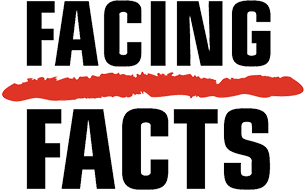Facing Facts develops a new online course on hate crime for national policy makers
02/02/2018
The Facing Facts online courses are useful tools that allow a variety of people to access new information and approaches on how to effectively recognize and react to hate crimes and hate speech. While the hate crime and hate speech online courses for civil society organisations have been launched this year, 10 new online modules are currently under development -in the framework of the EU funded Facing all the Facts project. The new online courses will be customized for the specific needs of law enforcement, civil society and governments.
Last week’s meeting has shown significant improvements in the preparation of the online module specifically designed for national policy makers and influencers. Representatives of international organizations such as the European Network Against Racism (ENAR), the OSCE Office for Democratic Institutions and Human Rights (ODHIR), the CoE European Commission against Racism and Intolerance (ECRI), the EU Fundamental Rights Agency (FRA), the European Commission DG Justice, as well as representatives of national governments, namely the Italian Observatory for Security against Acts of Discrimination (OSCAD), the Ministries of Interior of Hungary and Poland, and the Greek civil society organisation Racist Violence Recording Network (RVRN) have joined the Facing Facts team in Brussels to discuss the future structure of the course, to identify its goals and objectives and to address the main learning challenges.
The experts welcomed this new Facing All the Facts course, as it aims to broaden policy and decisions makers’ understanding of hate crimes and to expose them to a variety of possible governments’ responses to the problem. The course will address policy makers’ learning gaps and aims to offer support to improve EU member states’ hate crimes’ recording and monitoring systems.
The pool of experts stressed the importance for the course to share international norms, standards and existing practice; to support learners to diagnose their strengths and gaps in hate crime data collection and recording and, finally, to support learners to identify steps for improvement at the national level.
The course wants to offer sharp tools of analysis to professionals, to support their activity against hate crime and to make their data collection process more accurate. Moreover, the course will contribute to enhance policy makers’ approach to hate crime victims.
During the meeting was recognized the importance of fostering cooperation between civil society organizations (CSOs) and governments. However further efforts in this area were deemed as fundamental for achieving both a better recognition of victims’ rights and improved prevention measures. Collaboration and dialogue between CSOs and governments have to be as complete and functional as possible, in order to allow an effective exchange of information and a holistic approach to hate crime. A lack of coordination or communication may lead, in fact, to an uneven collection of data and to a difficult comparison of results and information between CSOs and governments.
Author: Laura Franceschin
For more information on Facing Facts Online courses visit www.facingfactsonline.eu
Be the first one to register to one of our course, drop us an email to onlinelearning@facingfacts.eu and you will receive news and update about our online learning offer.


 Facing Facts is co-funded by the Citizens, Equality, Rights and Values Programme
Facing Facts is co-funded by the Citizens, Equality, Rights and Values Programme